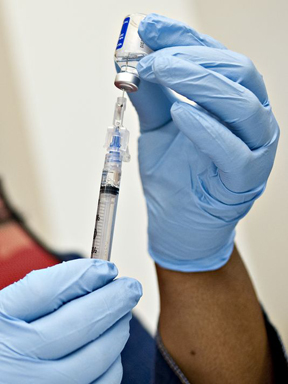
NEW ORLEANS: Nonprofit groups preparing to help people in Louisiana sign up for insurance under the federal health care law say they have had to battle misinformation and misconceptions about the program as they prepared for the opening of the second round of enrollments.
Brian Burton, state coordinator for three nonprofits, said some doctors have told patients they don’t accept Affordable Care Act plans. But, says Burton, there’s no way to tell a policy bought through the ACA marketplace exchanges from a policy purchased outside the marketplace.
He provided a notice that a southwest Louisiana resident received from a Texas medical partnership.
“Children’s ENT of Houston is not a network provider for any Affordable Care Act (ACA – Obamacare) plan,” it begins. “We cannot see patients who are covered under ACA insurance plans without an out-of-network referral or authorization.”
Practice manager Nancy Turner said that Children’s ENT received requests to join networks for ACA plans and rejected them because their reimbursement rates were lower than Medicaid.
She said she did not recall the companies or names.
“My understanding was, based on having gotten these requests to join the networks, that we would be able to opt out of Obamacare discount plans,” she said. “That’s why we were informing patients, `We’re happy to see you, but you have to get a referral from the company that wrote that because they’re not going to want to accept billing from us.”’
But Burton, who said he’s received about 10 similar complaints involving other doctors, said there’s no difference between exchange-purchase plans and other plans for the same coverage.
A spokeswoman for Louisiana’s largest insurance provider agreed.
“They have the same coverage, the same benefits, the same network,” said Robin Mayhall of Blue Cross-Blue Shield of Louisiana.
With a few exceptions, she said, the plans have the same names, she wrote in a later email. “There are a few multi-state products that aren’t on the Marketplace. But overall, there’s no way a provider should know, at least from Blue Cross, whether a patient has a Marketplace product or not.”
Burton said there’s also no way for doctors and other providers to identify people whose premiums are paid with federal help. In Louisiana, 88 percent of the nearly 101,800 who signed up last year are getting tax breaks or subsidies toward premiums.
Turner said, “I think still that we’re doing the right thing, telling them we’re not in the network if we’re not. But maybe we are in the network.”
Louisiana’s nonprofit counselors (called navigators), application centers and other groups were putting on 17 events around the state on Saturday to publicize the start of the signup period, which ends Feb. 15, and explain the program to anyone who shows up.
People could enroll on the spot at some of the events, and at others could set up later appointments with counselors.
Those without minimum insurance can be made to pay a penalty.
About 184,000 Louisiana residents were eligible last year. There’s no specific enrollment target for the 82,000 or so who did not sign up, Burton said.
In addition to helping them, he said, counselors will be helping any who want a hand renewing or finding new coverage, and explaining how to find doctors to people who are used to getting all their care at emergency rooms.
The federal Centers for Medicare & Medicaid Services have prepared “great manuals,” Burton said. “They’re very simple to understand,” with charts to help users find a primary care physician.
Burton said he doesn’t know how many of the insured have had problems finding doctors. For that matter, he doesn’t know how many of the people who got coverage are looking for another company _ navigators don’t keep any personal information, so they only know what they hear from people who ask for help, he said. -AP






